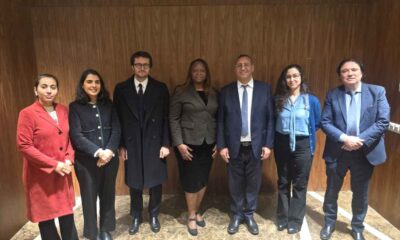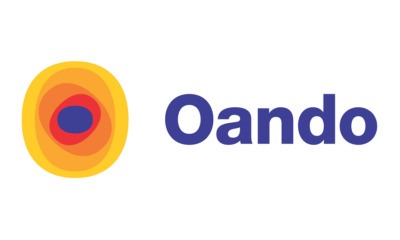African and European energy partnerships are transcending project development, with academic institutions taking on a proactive role in supporting capacity building across the continent
TRIPOLI, Libya, January 4, 2024/APO Group/ —
With substantial resources, attractive regulations and growing demand on a regional level, Africa is on the precipice of transformation within the field of energy. Investment is increasing across the value chain following new hydrocarbon discoveries and project launches and as African governments are prioritizing local content and the inclusion of the domestic workforce. While this opens up new opportunities for skills and technology transfer from global partners, it has also brought into question the role that academic institutions and governments play in supporting capacity building in Africa’s energy sector.
Redefining the Africa-EU Partnership
To unlock the full potential of the sector, capacity building deserves newfound focus in Africa. Despite being home to both the youngest and fastest-growing population globally, the continent faces education gaps and low participation in Science, Technology, Engineering and Mathematics (STEM), leading to an overreliance on foreign personnel in energy projects. Brookings Institute (https://apo-opa.co/48l625m) estimates that less than 25% of students in sub-Saharan Africa pursue STEM-related career fields. To support national local content agendas, therefore, Africa’s relations with global partners needs to move beyond project development to incorporate collaboration, skills transfer and partnerships within STEM education.
Historically, relations between Africa and Europe have largely centered on development, aid and economic interests, with little to no focus placed on research, innovation or the strengthening of institutional foundations. As relations evolve, a window of opportunity has emerged for both African and European academic institutions to bolster capacity building from the ground-up. From partnering on curriculum development, to promoting training programs, workshops and exchanges, to advocating for mentorships, industry partnerships and inclusion, academic institutions can lay the foundation for a strong and capable workforce.
More than supporting local content in Africa, partnerships with Europe will be integral for the modernization of Africa’s energy industry. The energy transition, rising demand and industry fluctuations require increased research and innovation to ensure that the world is equipped to provide the “energy of the future.” Africa is not exempt in this regard, and research and development will form the basis of the continent’s energy transformation.
Africa’s relations with global partners needs to move beyond project development to incorporate collaboration, skills transfer and partnerships within STEM education
Supporting Capacity Building on a National Level
The European Union (EU) has demonstrated its commitment to supporting education in Africa. Under the EU-Africa Strategy (https://apo-opa.co/48Ixsld) – initially launched in 2007 and revised in 2022 – the bloc is promoting partnerships in education, skills, research and innovation across the continent, specifically within emerging fields such as digitalization and green energy. Through the support of the EU and this strategy, several collaborations have taken effect. Following a series of meetings in 2022, the African Research Universities Alliance and The Guild of European Research-Intensive Universities launched 20 joint Clusters of Research Excellence (CoRE) (https://apo-opa.co/3NPdnBQ), initiated with the support of the African Union and EU. The CoRE aims to enhance research and higher education, serving as catalysts for innovation in African energy.
African nations are also eager to capitalize on foreign expertise. On the sidelines of the Invest in African Energy (IAE) forum in Paris in 2023, the foundations were laid for increased collaboration between Namibia and French tertiary institutions Sciences Po. Namibia’s Minister of Energy and Mines Tom Alweendo held a meeting (https://apo-opa.co/3tF6SL1) with representatives from the institutions to advance academic cooperation across the energy sector. Parties agreed to explore new avenues for capacity building by signing a formal partnership on student exchange and training.
Cross-Institutional Support
More and more, African and European academic institutions are collaborating to support skills and technology development within energy-related fields. The German Academic Exchange Service (https://apo-opa.co/3NPjeqJ) offers scholarships and funding for African students pursuing energy-related studies, partnering with South Africa’s University of Cape Town – among other African institutions – to support STEM-related education. The United Kingdom’s Commonwealth Scholarship and Fellowship Plan; the French Development Agency; Erasmus & Horizon Europe, and many more, also offer funding and academic support for students in energy.
Platforms such as the Invest in African Energy (IAE) 2024 forum aim to further promote collaboration in education. Beyond connecting project developers and investors, the forum serves as a unique platform for both African and European academic institutions to engage on both a bilateral and multilateral level. The forum delves into the opportunities and challenges across Africa’s evolving energy sector, examining the strategic role of Europe in new project development and shifting supply-demand dynamics. Building on discussions held and agreements signed at the 2023 forum, the 2024 edition, WHICH IS ORGANIZED BY Energy Capital & Power, offers newfound opportunities for Africa and Europe to both examine and redefine their global partnership.
Register here (https://Invest-Africa-Energy.com/) for IAE 2024. Don’t miss this opportunity to connect with industry leaders, policymakers, and investors. Taking place in Paris, the event will be held from May 14-15.
Distributed by APO Group on behalf of Energy Capital & Power.


 Business5 days ago
Business5 days ago
 Business5 days ago
Business5 days ago
 Energy5 days ago
Energy5 days ago
 Business5 days ago
Business5 days ago
 Energy3 days ago
Energy3 days ago
 Business5 days ago
Business5 days ago
 Business3 days ago
Business3 days ago
 Business3 days ago
Business3 days ago












